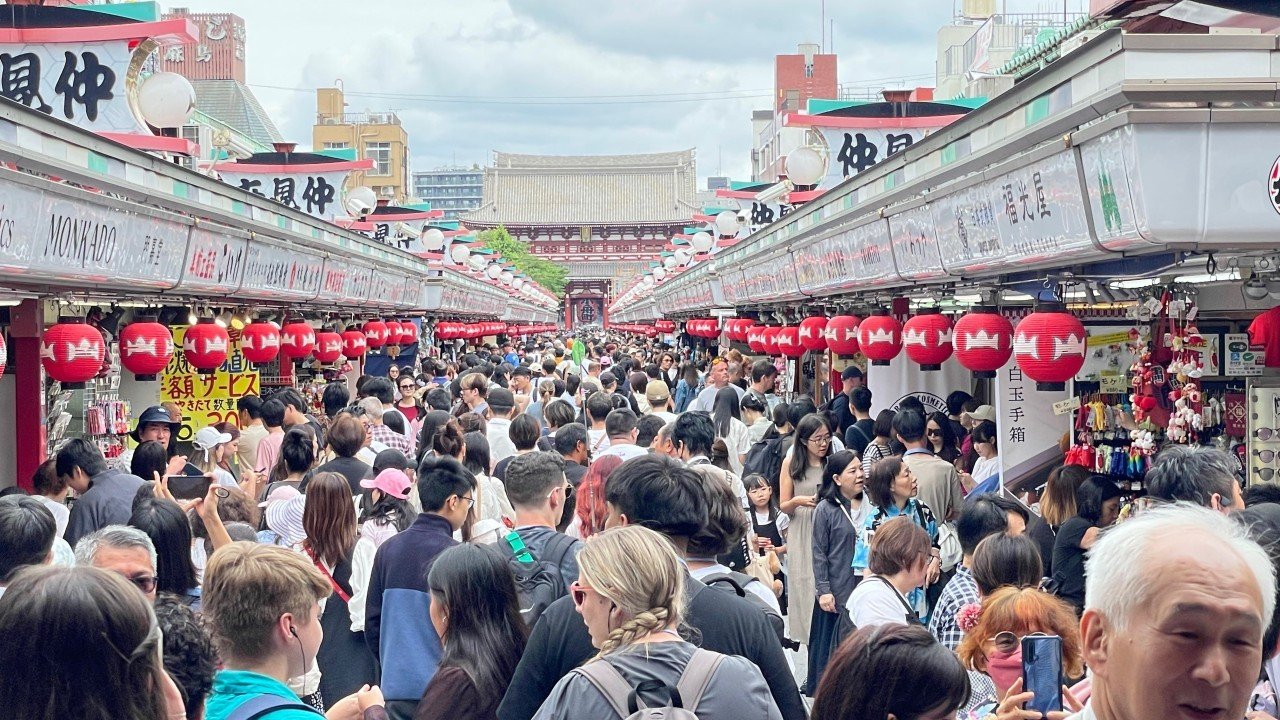Japan and the power of self-fulfilling prophecies: shaping reality through beliefs
Nakamise Street & SensoJi Temple, Asakusa, Tokyo. 2024. Photo credit: LSC (my daughter)
In June of this year, I traveled to Japan with my thirteen-year-old daughter. Fascinated by Japanese culture, we visited many temples where we encountered stations dedicated to drawing the famous “fortune papers.” My daughter, with her sensitivity and constant desire to spread positivity, became obsessed with these papers and wanted to bring some back as gifts for loved ones. Every time she drew a fortune that was negative or regular, she burned it in the large incense cauldrons, hoping to eliminate any bad omen, and kept drawing new ones until she found a positive one to give to friends and family.
This experience led me to revisit the concept of “prophecy,” a word that, until a couple of years ago, I ignorantly associated only with negative connotations (probably after watching the movie The Omen as a child, which for me was a terrifying experience).
As a wonderful gift from life, during my Communications studies, I discovered the concept of self-fulfilling prophecies from a broader perspective, and I realized how powerful and positive this can be.
Additionally, I recently participated in a six-week program on Positive Intelligence led by Shirzad Chamine, PhD, and one of the greatest insights I gained was the ability to tap into our inner Sage to create positive self-fulfilling prophecies. It’s incredibly interesting to choose this perspective instead of being dragged down by negative beliefs and judgments that sabotage us and trap us in spirals of behaviors that affect our well-being and that of those around us.
Going back to the origins of this concept, according to the University of Oxford, it was the sociologist Robert Merton (1948) who coined the term self-fulfilling prophecy to describe how a belief or expectation, even if false, can influence behavior in such a way that it becomes reality. In other words, our expectations, whether positive or negative, guide our actions and those of others until they ultimately come true.
My daughter LSC in a fortune station. June 2024. Photo credit: SCM
A bad fortune paper before it was burned. June 2024. Photo credit: SCM
How does the self-fulfilling prophecy cycle work?
Initial belief or expectation: It all begins with an assumption or expectation about a situation, a person, or an event. This expectation doesn’t have to be based on reality; it can stem from prejudice, hope, or even misinformation.
Behavior influenced by the belief: Once the expectation is established, it begins to shape actions and attitudes. The person behaves in ways that align with the belief, often without realizing it.
Outcome aligned with/confirms the belief: Finally, the outcome ends up matching the original expectation, not because it was inevitable, but because behavior influenced by the belief helped bring it about.
Two types of self-fulfilling prophecies
Self-imposed prophecies: These are created by our own expectations. If we believe we can succeed at something, our actions tend to align with that belief, increasing our chances of success.
Other-imposed prophecies: These occur when the expectations of others influence our behavior.
A classic example of other-imposed prophecies is the famous Pygmalion in the Classroom study (1968) by Robert Rosenthal and Lenore Jacobson. A group of teachers was told that certain students (randomly selected) had high potential and were more intelligent than the rest. By the end of the school year, those students showed superior performance—not because of greater innate talent, but because the teachers, having higher expectations, paid more attention to them and provided more support.
Impact of self-fulfilling prophecies
As the Rosenthal and Jacobson experiment demonstrated, these prophecies can have profound effects, positive or negative, on ourselves and on the people with whom we interact:
Positive: If you believe you can achieve a goal, your actions will align to make it happen. This is evident in sports, studies, or personal growth.
Negative: If you expect to fail, you’re likely to act accordingly, creating the conditions for failure, as often happens with self-doubt or lack of confidence.
Self-fulfilling prophecies can impact various aspects of our lives. For example, in economics, rumors about a bank's collapse can cause a massive withdrawal of funds, eventually leading to the bank's failure. In health, the placebo effect is a form of self-fulfilling prophecy where people believe a treatment will work, and their body responds positively, even if the treatment has no therapeutic value. In social interactions, if we anticipate a social event to be uncomfortable, we may act distant, prompting others to do the same.
In summary, self-fulfilling prophecies demonstrate the power of our beliefs or expectations to shape reality. Through Positive Intelligence, I’ve learned that we have the ability to activate our inner Sage and generate prophecies that propel us toward success and well-being. The question is: What kind of prophecies do we want to guide our life and those around us?




